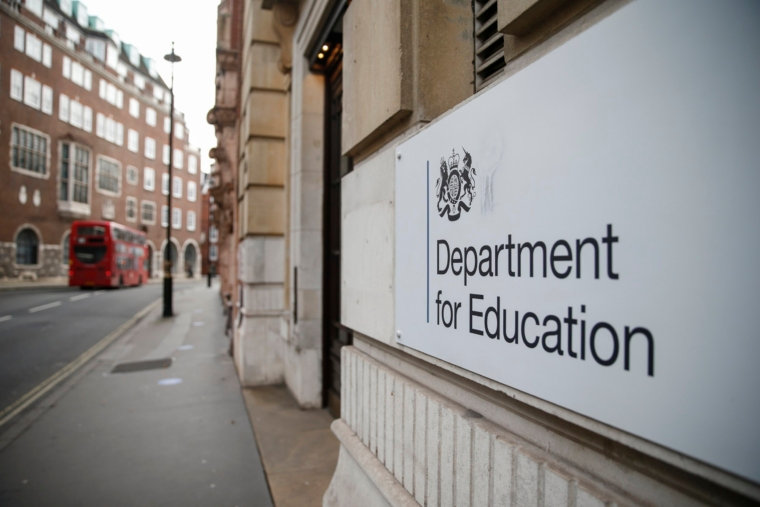SEND reforms should follow six principles, say leading disability organisations in open letter to the Department for Education

Today, United Response has written to the Department for Education as part of a group of 30+ organisations who work with and support children with special educational needs and disabilities, and their families, to call for future SEND reform to be underpinned by six principles.
We believe, based on our engagement with parents and carers, professionals, and organisations in the sector that reform must:
- Be co-designed with children and families
- Strengthen compliance with the law
- Ensure parental choice is retained
- Make post-16 support a priority
- Not squeeze children’s needs into funding bands
- Address existing gaps in the Green Paper
The Government’s consultation on its recent SEND Green Paper closed in July. Now the Department for Education will deliberate on the feedback it received and is expected to respond by the end of the year, with new regulations likely to follow shortly after.
While the Government’s SEND reforms were originally introduced to ‘improve an inconsistent, process-heavy and increasingly adversarial system’, we are concerned that the proposals in the Green Paper as they stand do not address the accountability gap and could worsen delays and access to support across the country.
Research conducted by the Together Trust earlier this year suggests that 9 in 10 parents and carers currently require specialist help to understand what support their child is entitled to.
One parent, Samantha, said that “there are so many obstacles to getting your child the right help, every decision is appealed before the support which is so desperately needed is finally given”.
Lucy Croxton, the Together Trust’s Campaigns Manager, said “the current system is underperforming for children and their families, but the current SEND proposals miss the mark. This joint letter demonstrates the will of organisations who support children with SEND to get reform right without cutting corners.”
Ali Gunn, United Response’s Public Affairs and Policy Lead, echoed Ms Croxton’s sentiments, saying that:
The Department has consistently let down those students most in need of additional supports in COVID-19’s aftermath. Countless young people with SEND have been left in limbo without any help transitioning back to regular school routines. We highlighted this during our own submission on the SEND review, as well as our concerns around the limited scope afforded to recognising the challenges facing the FE sector.
We were similarly disappointed to see in the Green Paper no recognition of how a rights-based approach could address such failings and act as a mechanism to monitor the impact of the new reforms’ implementation. Going forward, this must be at the centre of Department policy – nothing less will vindicate all of our children’s right to an education.
Chief among our recommendations, United Response is calling for:
- The UN Convention on the Rights of the Child and the UN Convention on the Rights of Persons with Disabilities to be fully incorporated into domestic law to ensure that children and young people’s rights and those with a disability are central to SEND reforms and considered of paramount importance to the Government.
- Introduce clear standards and monitoring to evidence how young people with SEND are being prepared for adulthood across the four Preparing for Adulthood (PFA) outcomes, ensuring that the standards link up with initiatives across government to reduce the SEND employment gap.
- Invest in a wide-reaching campaign to raise awareness amongst public and private sector employers of the benefits of recruiting a diverse workforce of young people with SEND through an apprenticeship route.
- Devise a funding and tariff structure that ensures full cost recovery for providers and enables them to meet the Real Living Wage for their workforce.
Signatories to the letter:
- Mark Lee, Together Trust, Chief Executive
- Stephen Kingdom, Disabled Children’s Partnership, Campaign Manager
- Parmi Dheensa, Include Me TOO, Executive Director
- Kate Steele, SHINE (Spina bifida • Hydrocephalus • Information • Networking • Equality), Chief Executive
- Sally Polanski, Amaze, CEO
- Sue Millman, Ataxia UK, CEO
- David Coe, AFK, CEO
- Caroline Stevens, National Autistic Society, CEO
- Michael McGrath, Muscle Help Foundation, Founder & CEO
- Louise Griew, Roald Dahl Marvellous Children’s Charity, CEO
- Kathy Evans, Children England, CEO
- Jane Harris, I CAN, Chief Executive
- Sarah Pugh, Whizz-Kidz, Chief Executive Officer
- Claire Bryant, Cherry Trees, CEO
- Tom Madders, YoungMinds, Campaigns Director
- Rita Waters, NYAS (National Youth Advocacy Service), Group Chief Executive (England and Wales)
- Zillah Bingley, Rainbow Trust Children’s Charity , Chief Executive
- Dr Rhidian Hughes, Voluntary Organisations Disability Group, Chief Executive
- Gill Gibb, Tree of Hope, CEO
- Helen Hewitt, Chailey Heritage Foundation, Chief Executive
- Assunta Soldovieri, Sebastian’s Action Trust, Head of Family Services
- Katie Ghose, KIDS, Chief Executive
- Dr Beth Bodycote, Not Fine in School, Director
- Tania Tirraoro, Renata Blower, Special Needs Jungle Ltd, Co-Directors
- Mike Hobday, National Deaf Children’s Society, Executive Director Policy and Campaigns
- Ali Gunn, United Response, Public Affairs and Policy Lead
- Megan Jarvie, Coram Family and Childcare, Head of Coram Family and Childcare
- Kevin Williams, The Fostering Network, Chief Executive
- Andy Fletcher, Together for Short Lives, Chief Executive
- Carolyne Willow, Article 39, Director